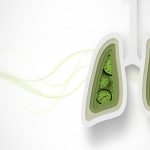Summer 2024 Vol. 14 Issue 02
-
From the Editor-in-Chief
Weight-loss Drugs and CancerObesity and increased cancer risk have been linked. Could new drugs promising to reduce weight also lower the risk of cancer?
by William G. Nelson, MD, PhD
-
Your Cancer Guide
Do You Want a Pet?Even though they come with additional responsibility, pets can be a source of support and comfort during cancer treatment.
by Hester Hill Schnipper
-
Caregiving With Confidence
Finding Good Help at HomeHome health providers can offer additional assistance, but it can take time to find the right fit.
by K.J. Bannan
-
Policy Matters
Clinical Trial Endpoints for Timely Drug DevelopmentAs patients live longer with cancer, scientists need to rethink how to determine if a new drug is safe and effective.
by Kenneth Anderson, MD
-
Follow the Heart
Oncologists and researchers increasingly focus on how to predict, treat and monitor for cardiovascular problems that develop before and after treatment.
by Stephen Ornes
-
Extending Remissions in Lung Cancer
Immune checkpoint inhibitors are effective against non-small cell lung cancer in some patients. Researchers are investigating who benefits from the drugs and when they should be administered for maximum impact.
by Natalie Slivinski
-
TILs in Solid Tumors
With the FDA’s approval of the first tumor‑infiltrating lymphocyte (TIL) therapy to treat advanced melanoma, researchers seek to expand this type of cellular therapy to other solid tumors.
by Kendall K. Morgan
-
Survivor Profile
Being Proactive About Prostate CancerBrian Jones applies lessons he has learned to help other Black men facing the disease.
by Suzanne McBride
-
Q&A
A Life RearrangedBone cancer and facial reconstruction surgeries redefined former opera singer Kathleen Watt’s relationship with her body.
by Ashley P. Taylor
-
Get Involved
Ground SupportHouston-based nonprofit offers free rides to and from medical appointments for people with cancer.
by Thomas Celona
-
Facts and Stats
From Lab Experiment to Lifesaving TreatmentDecades of research and clinical trials led to CAR T-cell therapy becoming a critical blood cancer treatment.
by Thomas Celona
AACR conference brings experts together to discuss strategies to reach people historically left out of cancer research.
by Eric Fitzsimmons
Treatment Combination Improves Survival in EGFR-positive Lung CancerAdding chemotherapy to targeted therapy improves outcomes for people with advanced EGFR-positive non-small cell lung cancer.
by Sandra Gordon
Lessons From 20 Years Living With CancerMultiple myeloma survivor Jonathan Gluck reflects on uncertainty, and the scientific progress that has kept him living with cancer for more than two decades.
by Eric Fitzsimmons
The Enduring Importance of Cancer Disparities ResearchOpening session from AACR conference highlights how perseverance and adversity have informed cancer disparities research over the years.
by Eric Fitzsimmons



















